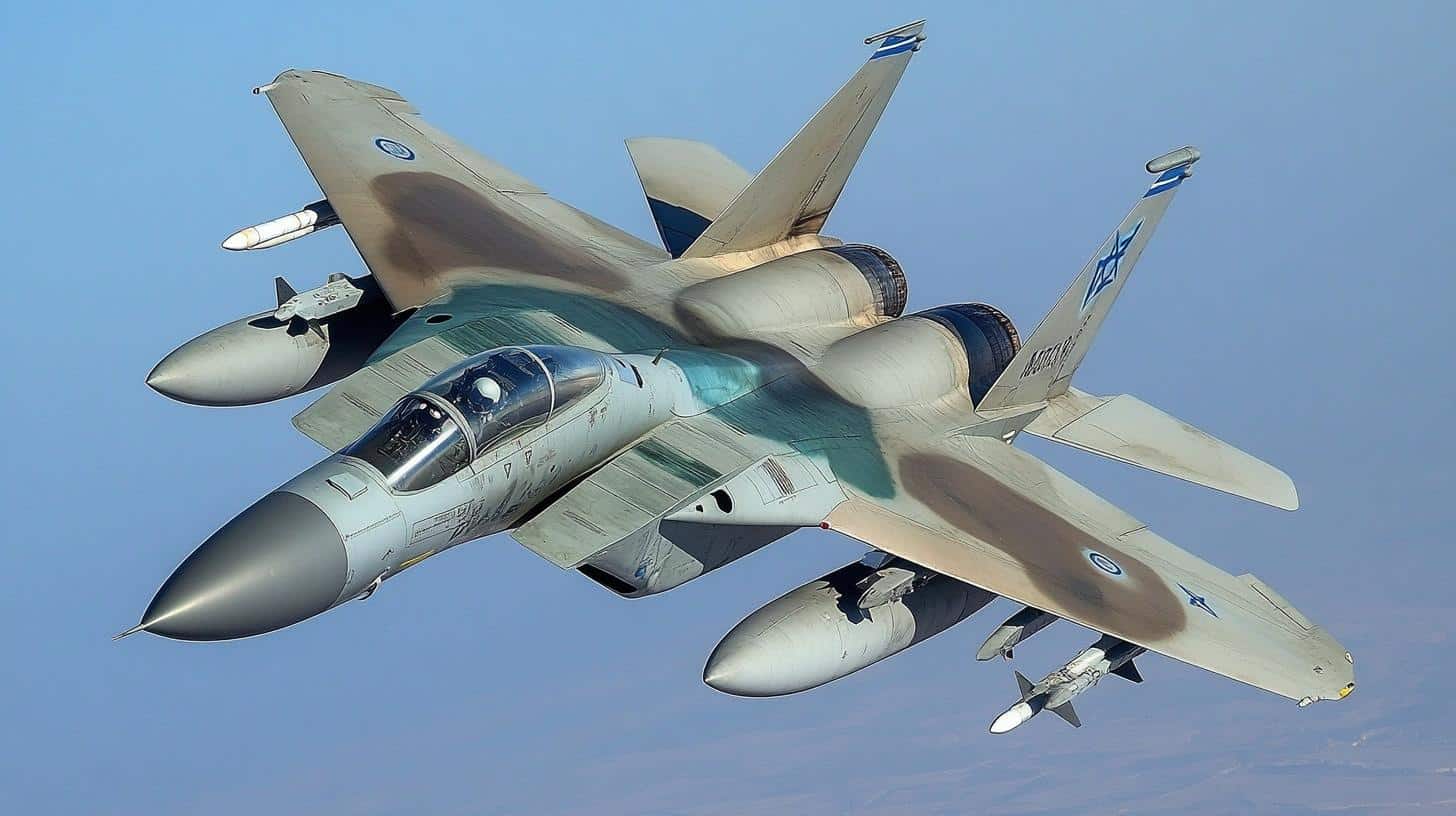Israel has embarked on a significant military upgrade, securing a deal with Boeing for the latest F-15 fighter jets. This agreement, valued at $5.2 billion, is set to reinforce Israel’s aerial capabilities and is funded through U.S. military aid.
Military Modernization
This strategic purchase involves 25 next-generation F-15 aircraft, with an option to procure an additional 25 in the future. These state-of-the-art jets are anticipated to enhance Israel’s defense strategy, providing advanced technology and superior combat capabilities.
Delivery Timeline
Starting in 2031, the fighter jets will be delivered to Israel in batches, with four to six aircraft arriving each year. This phased delivery aligns with Israel’s military planning, ensuring a steady integration of the new assets into their existing fleet.
Strengthening Defense Ties
By utilizing American military aid, this acquisition underscores the strong defense partnership between the U.S. and Israel. The agreement exemplifies ongoing collaboration in military advancement and security enhancement in the region.
As Israel looks to the future, these next-generation fighters are poised to play a critical role in maintaining its air superiority and addressing evolving defense challenges.
What the F-15 Superiority Means for Global Aviation and Defense Dynamics
The Global Impact of Israel’s F-15 Acquisition
Israel’s acquisition of 25 next-generation F-15 fighter jets from Boeing, funded by U.S. military aid, isn’t merely a local military upgrade; it reverberates across global defense dynamics, demanding attention to various facets not initially addressed. This arrangement, while bolstering Israel’s air force, also sheds light on the geopolitical and socio-economic consequences impacting various stakeholders worldwide.
Technology and Advancements: Game Changer or Arms Race?
The F-15 acquisition by Israel introduces cutting-edge aerial technology with advanced radar and enhanced weapon capabilities. The ripple effect of such developments propels other nations to potentially pursue similar avionics upgrades to maintain a competitive edge or counterbalance perceived threats. As countries invest in state-of-the-art defense mechanisms, the fine line between technological advancement and fuelling an arms race becomes increasingly blurred.
Economic Boost and Workforce Implications
The multibillion-dollar deal signifies a substantial economic boost for Boeing and the U.S. defense industry, potentially leading to job creation within the aerospace sector. This partnership further solidifies the manufacturing prowess of U.S. defense contractors on a global scale, enhancing their economic footprint and technological leadership. However, the ethical quandary of profiting from military expansions remains a topic of debate.
Social and Ethical Considerations: Balancing National Security and Peace
While enhancing Israel’s air superiority, such military enhancements can be perceived diversely across different communities and nations. For some, these advancements signify heightened national security and deterrence. For others, they might evoke unease, signaling an escalation in regional tensions and defense expenditures, overshadowing diplomatic resolutions.
The Role of International Relations and Defense Collaboration
Strengthening the defense ties between the U.S. and Israel underscores the intricate web of international alliances that are pivotal in maintaining geopolitical stability. It underlines questions about sovereignty in defense procurement, as smaller nations may depend heavily on such alliances for maintaining their military capabilities.
Advantages and Disadvantages of Military Upgrades
Advantages:
– Enhanced Security: With superior air capabilities, Israel can better deter potential threats.
– Technological Leap: Acquisition leads to advancements in homegrown technology applications and defense tactics.
– Economic Stimulus: The defense deal creates jobs and injects funds into the aerospace economy.
Disadvantages:
– Regional Tension: Military upgrades might alarm neighboring countries, escalating arms races.
– Dependency: Reliance on U.S. military aid highlights dependence which may impact national policies.
– Ethical Concerns: Increased military spending may divert resources from essential social services.
Is this Deal a Precedent for Other Nations?
Certainly, Israel’s move may set a precedent, particularly for nations with substantial defense budgets seeking to modernize their fleets. Understanding the balance between innovation and responsible defense spending becomes crucial for future international military agreements.
For more information on military technology and defense systems, consider visiting boeing.com and defense.gov for insights into U.S. defense strategies and collaborations.







